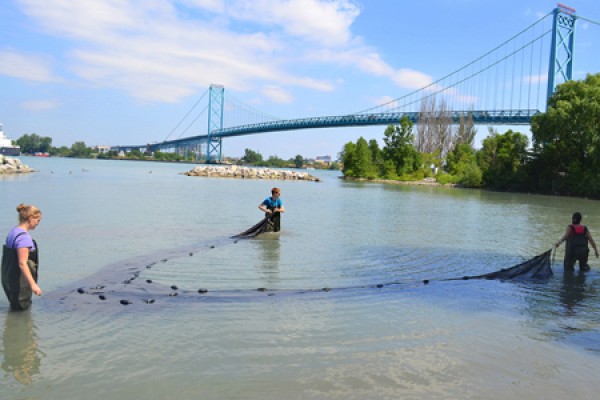 Students gather samples from the Detroit River along the shore west of the Ambassador Bridge.
Students gather samples from the Detroit River along the shore west of the Ambassador Bridge.
While both Canada and the United States have designated the Detroit River as a Heritage River, it is also a Great Lakes Area of Concern. Despite its former reputation as being one of the most polluted rivers in North America, detailed surveys now show large tracts of clean areas in many portions of its waters.
Biology professor Ken Drouillard, director of the analytical laboratory at the Great Lakes Institute for Environmental Research, will discuss current challenges facing clean-up actions and assessments in a free public lecture Wednesday entitled “How clean is the Detroit River and can I eat the fish?”
Thanks to the banning of certain organic industrial chemicals and enhanced sewage treatment capacity in Windsor and Detroit, says Dr. Drouillard, the river has seen major improvements in water and sediment quality over time, but there are still issues and hot spots in the system related to contaminated sediments.
His lecture will provide an overview of monitoring programs and of a food web model developed to understand what regions contribute to fish contamination, how this relates to fish species and area of collection, and the actions needed to decrease the number of fish advisories in the future.
It begins at 7:30 p.m. May 21 at Canada South Science City, 930 Marion Avenue, and is part of the Science Café series sponsored by the Faculty of Science to offer discussion of important science research for the general public.
